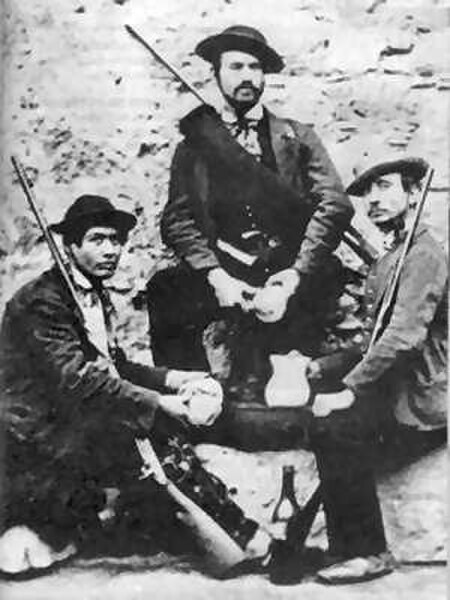Salvatore Giuliano was an Italian bandit, who rose to prominence in the disorder that followed the Allied invasion of Sicily in 1943. In September of that year, Giuliano became an outlaw after shooting and killing a police officer who tried to arrest him for black market food smuggling, at a time when 70 percent of Sicily's food supply was provided by the black market. He maintained a band of subordinates for most of his career. He was a flamboyant, high-profile criminal, attacking the police at least as often as they sought him. In addition, he was a local power-broker in Sicilian politics between 1945 and 1948, including his role as a nominal colonel for the Movement for the Independence of Sicily. He and his band were held legally responsible for the Portella della Ginestra massacre, though there is some doubt about their role in the numerous deaths which occurred.
Salvatore Giuliano
Newspaper reports.
Cover of "L'Europeo" of July 1950 about the mysterious death of Giuliano
Scene from the opera Salvatore Giuliano by Lorenzo Ferrero, 1996.
Banditry is a type of organized crime committed by outlaws typically involving the threat or use of violence. A person who engages in banditry is known as a bandit and primarily commits crimes such as extortion, robbery, and murder, either as an individual or in groups. Banditry is a vague concept of criminality and in modern usage can be synonymous for gangsterism, brigandage, marauding, terrorism, piracy and thievery.
Carmine Crocco's lieutenant Agostino Sacchitiello and members of his band from Bisaccia, Campania photographed in 1862
Members of the Dalton Gang on display following the Battle of Coffeyville in 1892 – left to right: Bill Power, Bob Dalton, Grat Dalton, and Dick Broadwell






